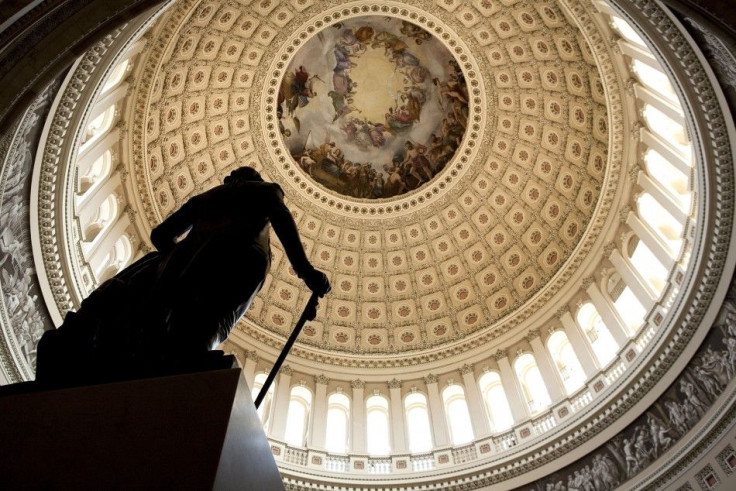U.S. Debt Deal: Could Super Committee Help Calm Markets With Deficit Reduction?

Congress' new "super committee" is almost complete, as the Republican leadership has announced its six appointees to the panel charged with cutting the budget deficit by another $1.5 trillion by Thanksgiving.
The House Republican members, appointed by Speaker John Boehner, R-Ohio, are Jeb Hensarling of Texas, a Conservative leader; Dave Camp of Michigan, chairman of the Ways and Means Committee, and Fred Upton, also from Michigan, chairman of the Energy and Commerce Committee and a former budget officer in the Reagan administration.
In the Senate, Minority Leader Mitch McConnell, R-Ky., has appointed his deputy Jon Kyl, R-Ariz.; Rob Portman of Ohio, who served as director of the Office of Management and Budget under President George W. Bush, and anti-tax advocate Patrick Toomey of Pennsylvania.
Reid Goes with Experienced Senators
Earlier, Senate Majority Leader Harry Reid of Nevada appointed three key Senate Democrats: Finance Committee Chairman Max Baucus of Montana, John Kerry of Massachusetts and Patty Murray of Washington.
House Minority Leader Nancy Pelosi, D-Calif., has not yet named her three choices for the committee.
The super committee is under increased pressure to produce an even bigger deficit reduction than what Congress and President Barack Obama called for in the debt ceiling deal announced last week.
Since the debt deal's passage, U.S., European, and other global markets have been roiled by concern about government debt, also called sovereign debt, in Europe, and by the U.S.'s budget deficit and tepid economic recovery.
Dow in Full Retreat
The Dow Jones Industrial Average (DJIA) has plummeted more than 10 percent in the past two weeks; on Thursday at midday the Dow was trying to make up for its latest swoon -- a 520-point plunge Wednesday -- and was trading up about 211 points to 10,931.
Institutional investors fear that the U.S. economic recovery is slowing to a crawl, and that inadequate job growth will weigh on both corporate revenue and earnings growth. Add a market that's also concerned about the government's debt service levels, and the result is a stock market where fear and volatility are pervasive, and where the better data points -- such as strong profits in many U.S. corporations -- are being blotted out.
Wednesday's Dow plunge also can be attributed in part to other short-term players, specifically the "bond vigilantes," who appear to have turned their attention now to France on the aforementioned bank insolvency chatter, after hitting the bonds of Greece, Ireland, and Italy earlier in the financial crisis.
Economist Ed Yardeni, who now runs Yardeni Research Inc. of Great Neck, N.Y., coined the term "bond vigilante" in the 1980s to describe the institutional investor practice of selling bonds and shorting bonds of governments when they see unsustainable fiscal policies and/or other actions by governments or companies that the institutional investors believe will lower the value of the bonds issued.
The relevance of the above for the super committee? It goes without saying that with institutional investors on edge, the investors want to see a functioning, focused and united, super committee that achieves at least $1.5 trillion in additional deficit reduction over 10 years.
Political/Public Policy Analysis: One notable exclusion from the super committee? The House Republican side does not include Budget Committee Chairman Paul Ryan of Wisconsin, author of a plan than would have privatized much of Medicare, the U.S. health insurance program for senior citizens.
Ryan's plan drew strong criticism, and to some inside the Beltway, it's radioactive, hence it was probably prudent to keep him off the board.
More broadly, U.S. and global markets would appreciate a "quick start" by the committee. The markets have been rocked by European sovereign debt concerns, and now worries about a French bank being insolvent; add to that the large U.S. budget deficit with tepid economic growth, and one can see why an announcement by the super committee that there's bipartisan agreement for another $500 billion or $800 billion in deficit reduction -- even before it's held its first meeting -- would help calm the stock, bond, and currency markets.
© Copyright IBTimes 2024. All rights reserved.





















